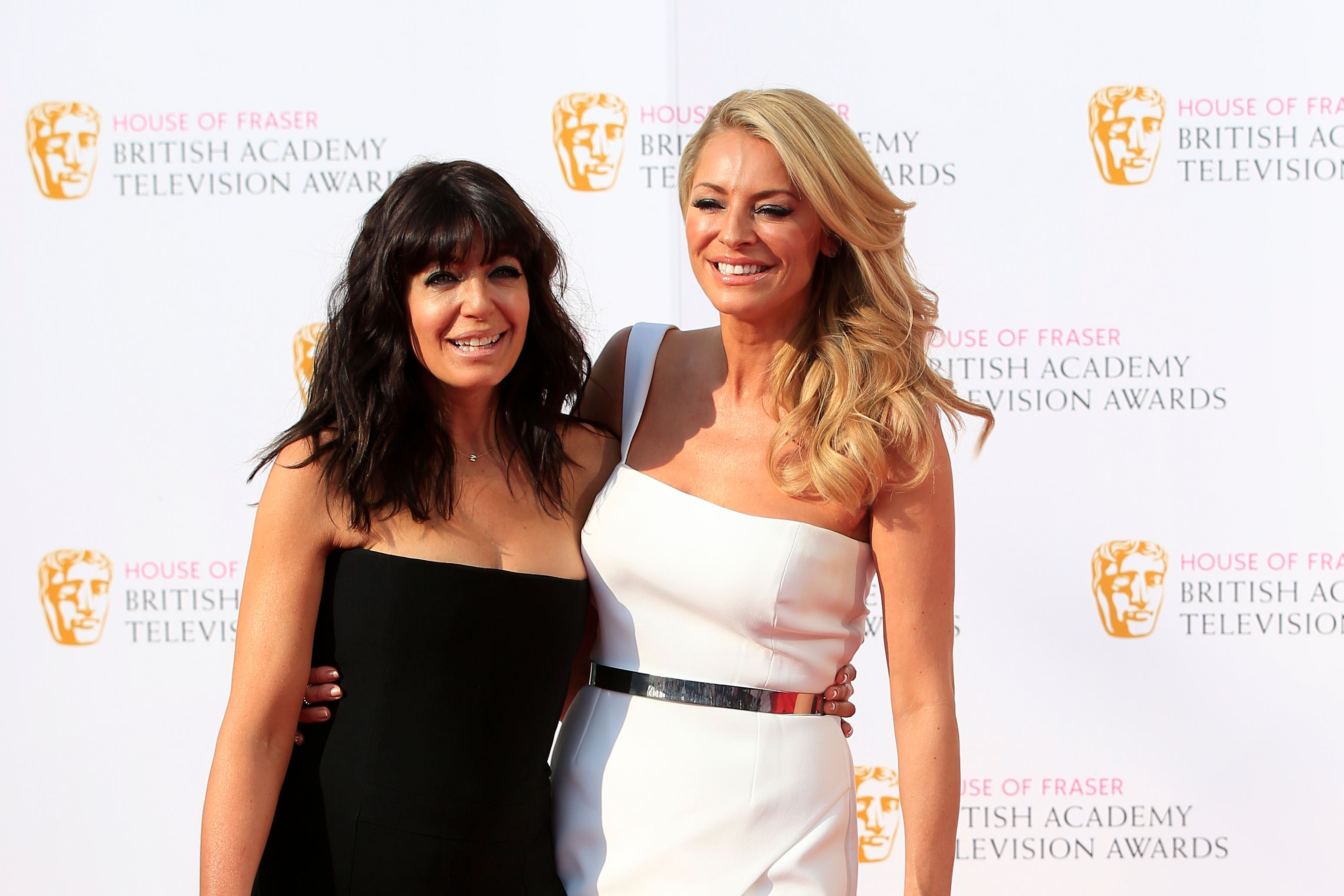- Lifestyle
As the BBC show faces yet another scandal, the ‘Strictly’ gig is either the most exciting vacancy in broadcasting right now or a poisoned chalice. But perhaps the real debate we should be having is whether it’s time to dim the lights for good. Katie Rosseinsky reports.
Saturday 22 November 2025 06:00 GMTComments
 CloseTess Daly and Claudia Winkleman to leave Strictly Come Dancing at end of series
CloseTess Daly and Claudia Winkleman to leave Strictly Come Dancing at end of series
Stay ahead of the curve with our weekly guide to the latest trends, fashion, relationships and more
Stay ahead of the curve with our weekly guide to the latest trends, fashion, relationships and more
Stay ahead of the curve with our weekly guide to the latest trends, fashion, relationships and more
 Email*SIGN UP
Email*SIGN UPI would like to be emailed about offers, events and updates from The Independent. Read our Privacy notice
Just a few short years ago, Strictly Come Dancing was the shiniest of jewels in the BBC’s broadcasting crown. It was a reliable ratings hit, celebrities were lining up to get vigorously spray-tanned and learn the salsa, and the whole production seemed to exude a genuine sense of niceness. It was comfort telly par excellence, and didn’t leave you with a grotty taste in your mouth, unlike its more exploitative competitors in the reality TV sphere.
But right now, the show feels less like the diamond of public service broadcasting and more like a weight around the corporation’s neck, as yet another bleak headline threatens to extinguish that much-vaunted “Strictly magic”.
Yesterday, The Sun reported that a Strictly star, who cannot be named for legal reasons, was arrested on suspicion of rape in October. The arrest was related to an alleged incident last year, and was confirmed by Hertfordshire Police. “A man was released on police bail under investigation having been arrested in London on Monday 13 October on suspicion of rape,” the force told the newspaper, adding that inquiries are continuing. The BBC, meanwhile, said that it “would not be appropriate to comment on an ongoing police investigation”.
The news comes after another male Strictly star was arrested in August on suspicion of rape; the Metropolitan Police said that he was also suspected of “non-consensual intimate image abuse”. These two grim news stories add to an unenviable roll call of Strictly-related scandals that are proving increasingly difficult for fans of the show (and I include myself in that number) to ignore.
Strictly’s reputation has never been entirely squeaky clean; for a family-friendly show, it has been the rumoured catalyst for a staggering amount of extra-marital goings-on (the so-called “Strictly curse”, which has seen scores of contestants split up with their significant others either during or shortly after their stint in the competition, is is very well-documented). But that arguably lent the programme a bit of a gossipy frisson that only helped cement its position as one of the nation’s most talked-about shows.
But there has been a shadow hanging over Strictly, dimming the gleam of all those diamantés for a while now and that shadow has only darkened. January 2024 saw former contestant Amanda Abbington reveal that she’d been diagnosed with mild PTSD. She would later accuse her dance partner, Giovanni Pernice, of bullying; Pernice, who strongly denied the allegations, was dropped from the show’s line-up. A long investigation upheld complaints of verbal bullying and harassment, but concluded that Pernice had not been physically aggressive.
 open image in galleryWynne Evans was dropped by The BBC after ‘inappropriate and unacceptable’ remarks (BBC)
open image in galleryWynne Evans was dropped by The BBC after ‘inappropriate and unacceptable’ remarks (BBC)While this scandal was bubbling away, another professional, Graziano di Prima, left Strictly after admitting to kicking celebrity contestant Zara McDermott during rehearsals (he later apologised, stating that his “intense passion and determination to win might have affected [his] training regime”.
Against this backdrop, last year’s competition just about managed to drag its feet along and go through the motions; the show’s welfare policies got a refresh, too, with chaperones brought in to accompany celebs during rehearsals. But then the Strictly live tour, which sees recent contestants take the routines on the road and perform to arenas full of fans, was engulfed in bad publicity, too. Go Compare opera singer Wynne Evans was dropped by the BBC as a radio presenter after making what he described as “inappropriate and unacceptable” remarks at the launch event.
Not long afterwards, EastEnders star and 2024 contestant Jamie Borthwick was suspended by the BBC after using a slur against people with disabilities on the Strictly set. He apologised ‘sincerely and wholeheartedly’ for the remarks. And in August, the broadcaster launched an investigation into alleged drug use by two Strictly stars, in another blow to the series’ family-friendly image. The two separate arrests on suspicion of rape, then, are bleak additions to a very sorry saga. Against this uncomfortable backdrop, longtime presenters Tess Daly and Claudia Winkleman announced in October that they would both be stepping down from the series at the end of 2025.
The pair’s consummate professionalism has just about managed to keep Strictly afloat through all this behind-the-scenes mess, but they have decided that now “feels like the right time” to leave. Although their goodbye message was a cheery one, you have to wonder whether the beloved duo were simply exhausted by having to grin and bear it every Saturday night as another show-related bombshell seemed to explode around them.
 open image in galleryTess Daly and Claudia Winkleman are stepping down from ‘Strictly’ (PA)
open image in galleryTess Daly and Claudia Winkleman are stepping down from ‘Strictly’ (PA)There has been much chatter about who might step into Daly and Winkleman’s presenting shoes as Strictly’s hosts, but less discussion of a question that’s arguably just as pertinent: will any big names actually want to become the show’s latest figureheads, and risk aligning themselves with any future scandals?
The Strictly gig is either the most exciting vacancy in broadcasting right now, or the biggest poisoned chalice, depending on how cynically you look at it. “If it was simply a case of the duo looking to step down and initiate a graceful passing of the baton, then a joint announcement with the new presenters would have been better,” says Nina Sawetz, reputation and crisis adviser. “Constant speculation of behind-the-scenes tensions, salary rumours and endless debates on who will be replacing [Daly and Winkleman] and whether they’ll measure up will only overshadow and heap pressure onto anyone looking to step into their position,” she adds. “Big-name presenters won’t want to inherit instability, even for a show as big as this.”
Is the best solution for the BBC to simply cut their losses and put this floundering show out of its misery altogether? I’ve always previously been of the opinion that Strictly could withstand the bad headlines, but I underestimated the cumulative effect of so much scandal. “Strictly has been living off its legacy for a while, but the problem now is the accumulation of negative stories,” Sawetz adds. “When a show designed to be warm, familiar and cosy becomes defined by uncertainty and disruption, one controversy at a time, it not only starts to drag the programme itself, but its talent and the wider corporation.”
Another tell-tale sign that a series is on its last legs is audience numbers, but Strictly makes an interesting case study here. Viewing stats for the launch shows have been creeping downwards for the past few years, but Strictly is still one of the most watched shows on British TV; the decrease might just reflect changing trends in telly watching, rather than any big judgement on the part of the viewership. It’s hard to dispute, though, that Winkleman’s other blockbuster show, The Traitors, seems to have usurped Strictly’s place in audiences’ hearts.
Nina Sawetz‘Strictly’ has been living off its legacy for a while, but the problem now is the accumulation of negative stories,
But 21 years is a very long time in TV, and there’s certainly an argument to be made for quitting while you’re ahead (or, in the case of Strictly, while you seem to be rapidly veering off-piste). “Reality TV shows are harder to gauge when they have passed their sell-by date, due to the unpredictable human element,” notes David Frossman-Miller, global media director at W Communications. It tends to be more obvious when a drama or comedy is going stale, but in the reality bubble, “two ho-hum years could be blown out of the water with a season with some fantastic personalities”.
And so, he adds, the BBC is certainly “in a difficult position”. Cancelling “a hugely loved show, a staple of Saturday night TV, is a huge call to make”, he adds, but “the repeated issues have been a huge internal headache for the BBC”, and the continuing flurry of bad publicity “makes this show ending sooner a necessary reality”.
Perhaps BBC bosses should look over to their rivals at ITV for some examples of what happens when you let a once-beloved show stumble on way past its prime. The X Factor, Strictly’s one-time Saturday night ratings competitor, rumbled along for way too long, throwing in random format shake-ups that only served as a reminder of how much better it used to be. Earlier this week, in a glaring warning sign, Strictly announced a new “Instant Dance challenge” taking place later in the month; it’s the first time producers have had to mix up the tried and true formula, and it felt like an attempt to claw back some positive headlines.
While a bit of low level gossip can do wonders for a show’s reputation, when the backstage dramas utterly obscure what’s happening on screen, you know a programme is in truly dire straits. “Strictly’s off-screen issues have overshadowed the show, and will likely in turn be the nail in the coffin,” Frossman-Miller predicts. It certainly feels like a dead show walking right now.
More about
Strictly Come DancingJoin our commenting forum
Join thought-provoking conversations, follow other Independent readers and see their replies
Comments



